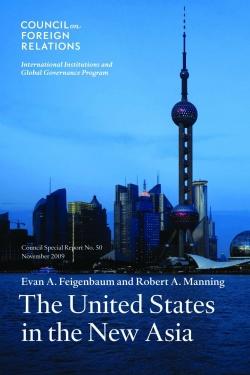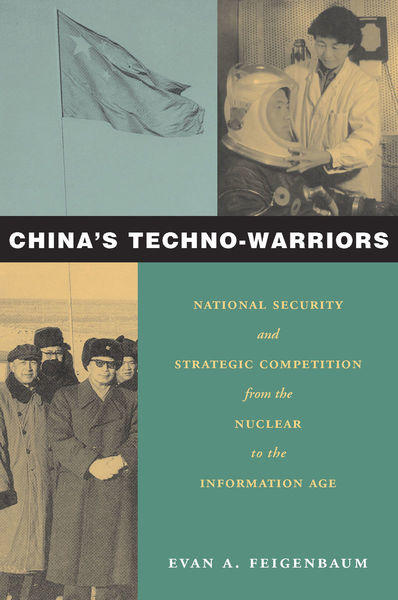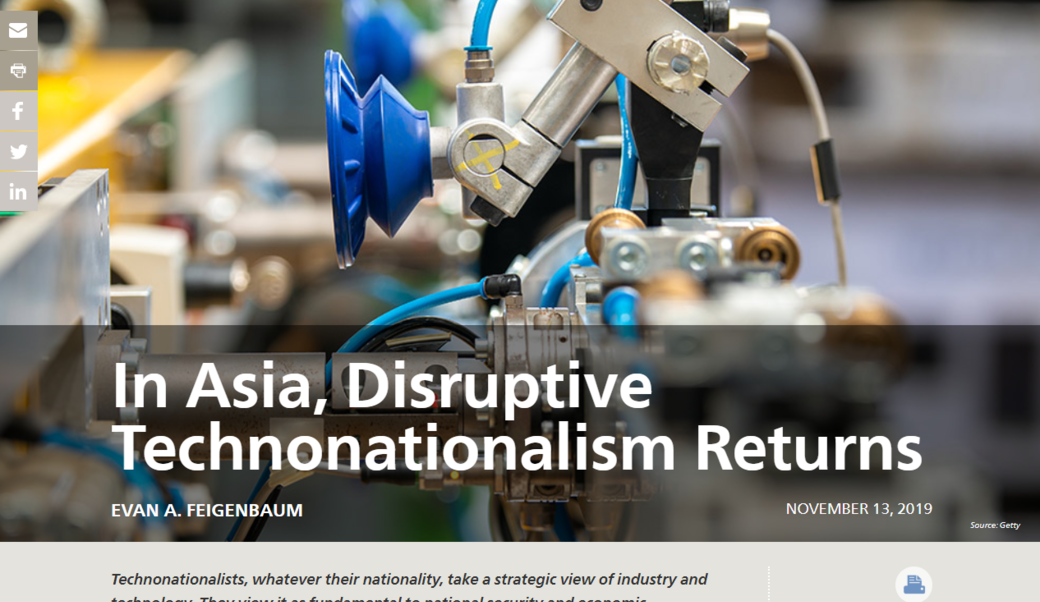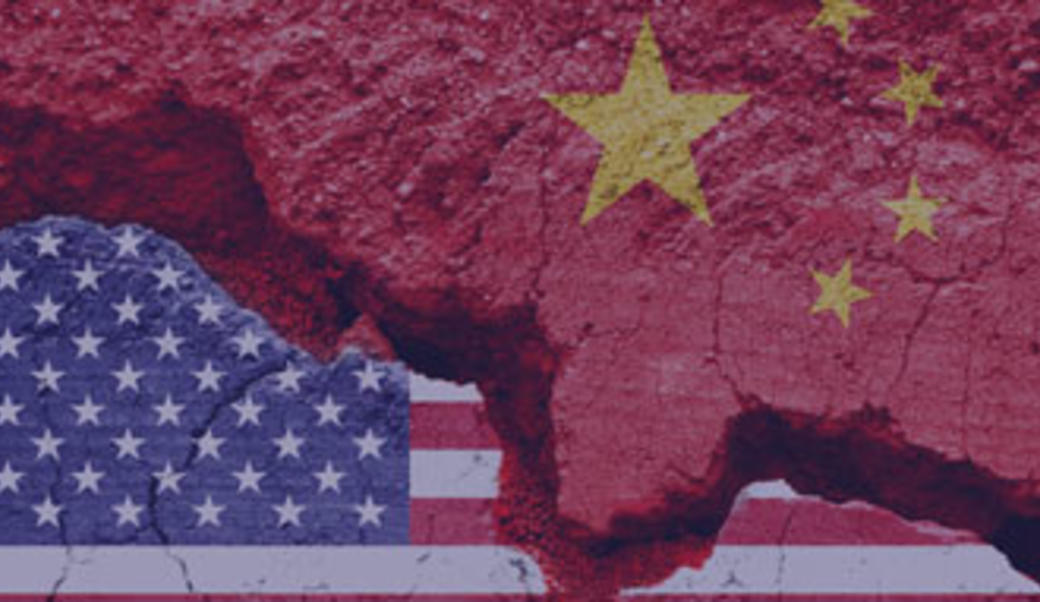Fast Facts
- Vice president for studies at the Carnegie Endowment for International Peace
- Former deputy assistant secretary of state for South Asia (2007–2009)
- Former deputy assistant secretary of state for Central Asia (2006–2007)
- Expertise on China, South Asia, Central Asia, East Asia, nuclear nonproliferation
Areas Of Expertise
- Foreign Affairs
- American Defense and Security
- Asia
- Trade
Evan A. Feigenbaum, practitioner senior fellow, is vice president for studies at the Carnegie Endowment for International Peace, where he oversees Carnegie's research in Washington, Beijing, and New Delhi on a dynamic region encompassing both East Asia and South Asia. Initially an academic with a PhD in Chinese politics from Stanford University, Feigenbaum’s career has spanned government service, think tanks, the private sector, and three major regions of Asia.
From 2001 to 2009, he served at the U.S. State Department as deputy assistant secretary of state for South Asia (2007–2009), deputy assistant secretary of state for Central Asia (2006–2007), member of the policy planning staff with principal responsibility for East Asia and the Pacific (2001–2006), and an adviser on China to Deputy Secretary of State Robert B. Zoellick, with whom he worked closely in the development of the U.S.-China senior dialogue.
Following government service, Feigenbaum worked in the private and nonprofit sectors: He was vice chairman of the Paulson Institute at the University of Chicago and the co-founder of MacroPolo, its digital venture on the Chinese economy; head of the Asia practice at the markets consultancy Eurasia Group, a global political risk consulting firm; and senior fellow for East, Central, and South Asia at the Council on Foreign Relations. Before government service, he worked at Harvard University (1997–2001) as lecturer on government in the faculty of arts and sciences and as executive director of the Asia-Pacific Security Initiative and program chair of the Chinese Security Studies Program in the John F. Kennedy School of Government. He taught at the U.S. Naval Postgraduate School (1994–1995) as lecturer of national security affairs and was a consultant on China to the RAND Corporation (1993–1994).
He is the author of three books and monographs, including The United States in the New Asia (CFR, 2009, co-author) and China’s Techno-Warriors: National Security and Strategic Competition from the Nuclear to the Information Age (Stanford University Press, 2003), which was selected by Foreign Affairs as a best book of 2003 on the Asia-Pacific, as well as numerous articles and essays.



